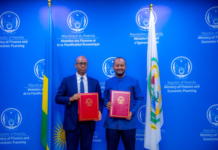Egerton University in Kenya has initiated a bee propagation project that is set to boost bee farming. The dubbed Queen Bee Rearing Technology (QBRT) will enable farmers buy mature queens to start their bee farms instead of waiting for the insects to colonize their hives.
University’s Bee Research and Demonstration Unit (BRDU) is undertaking the project at the Njoro Main Campus’ Agro-Science Park. The project’s goal is to increase the number of young queen bees per colony.
Acting Deputy Vice Chancellor in charge of Research and Extension Professor Bockline Omedo Bebe says the initiative is part of the University’s bold action to protect and conserve bee colonies adding that bees and environment must be viewed through the lenses of food security.
“Although these insects are often associated with honey, pollination accounts for about one in every three bites of food. Bees are responsible for an estimated 80 % of pollination,” notes the Deputy Vice Chancellor.
Variability in production
“Once they mature, they are taken to separate compartments, then mated and left to lay eggs. Young queen bees bred at BRDU are being used to replace old queens and reduce the swarming impulse as well as exchange failing queens with vigorous ones to prevent a failed colony. The technology uses a moveable comb or a moveable frame hive so that the hive components can be moved in the way the beekeeper wishes to rear the new queens,” offers the Deputy Vice Chancellor.
Professor Bebe explains that though the life expectancy of a queen bee is 4-5 years, the mother bee is primarily productive in the first two years. BRDU he says is encouraging farmers to keep young queens for a constantly high production.








[…] Source […]
Comments are closed.